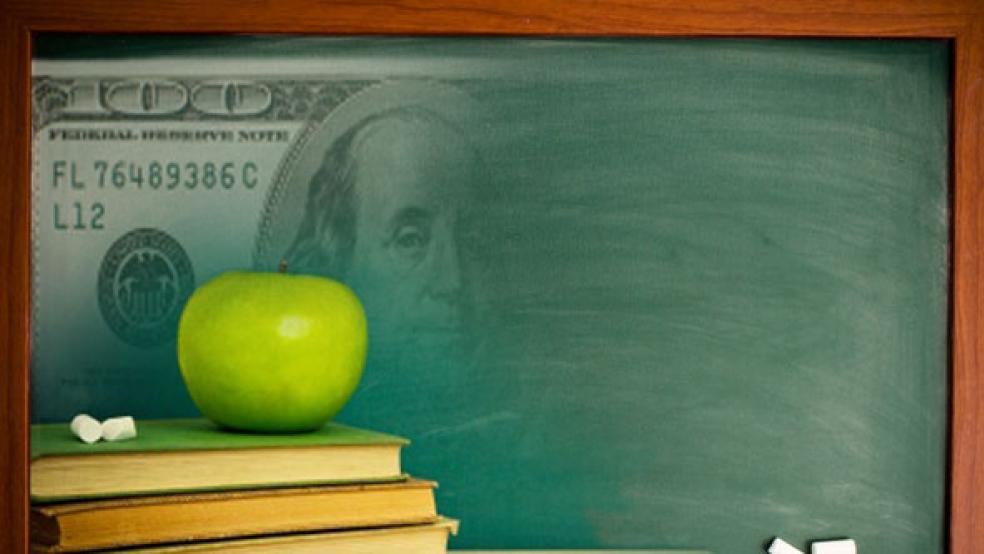Back-to-school season marks the beginning of the end of summer. Parents stock up on fresh school supplies, teachers prepare their classrooms and state legislatures offer what has become an annual back-to-school tradition in its own right: tax-free weekends for parents and students alike. But despite their popularity, sales tax exemptions are largely a bad deal.
This August, 17 states will offer tax-free holidays exempting certain supposedly school-related purchases from state sales taxes. Everyone seems to love this event. Bargain hunters have another reason to head to the stores. Retailers have another reason to advertise their temporarily tax-free products. Lawmakers get to claim they’re helping families and supporting education.
At their core, these holidays are a poor attempt to compensate for poorly planned state tax systems. New York created the first sales tax holiday in 1997 to lure shoppers from across the border in New Jersey. Other states copied and pasted a version of New York’s statue to their own books, and by 2010 19 states offered tax holidays.
Related: Americans Will Spend 8.9 Billion Hours Doing Taxes in 2016
Lawmakers usually promise that a sales tax holiday will lead to a bump in economic activity to improve a state’s economy, but sadly, that hasn’t panned out in the two decades since New York’s experiment. When it decided to evaluate its own holiday, New York realized that the exemption didn’t prevent New Yorkers from doing their shopping across state lines, and it didn’t create any noticeable economic benefits within the state. Consumers simply shifted the timing of purchases they would have otherwise made over the course of a few months.
Other states have reached the same conclusion: Illinois, North Carolina, Vermont and West Virginia have all abandoned their tax holidays, citing unsustainable losses with no measurable benefits.
But sales tax holidays are not a loss for everyone. Favored retailers and manufacturers win, while others lose. It all depends on what makes it on the list of tax-free items. As a result, tax-free holidays have more to do with who has the best lobbyists than what kids actually need for school.
Related: The Best and Worst States for Taxes in 2016
Many lists of tax-free items make little sense at all. Gardening gloves, diapers and hunting safety apparel made Florida’s back-to-school tax holiday list. Wedding dresses, diving wetsuits and vintage furs made South Carolina’s. Belts with buckles attached made Iowa’s list, while belts without buckles were left off. Georgia’s list includes computers but not computer bags.
Obviously, whether or not a belt has a buckle shouldn’t determine if a consumer pays an additional 6 percent. But none of that really matters: Sales tax holidays are strategic political moves to appease the public, boost policymakers’ popularity and disguise the real issue of high everyday sales tax rates.
In fact, sales tax holidays tend to make tax policies worse. Recent research by our colleagues finds that states’ sales tax rates end up being between 0.1 and 0.25 percent higher for each tax exemption they offer. In other words, states make up for these holidays through higher rates on other taxable products.
Related: Do Millionaires Really Move Away When Their Taxes Go Up?
A tax-free weekend might sound like a harmless, even benevolent, gesture for families buying back-to-school essentials. States have even gone so far as to extend tax-free holidays to other “essentials” pertaining to the Second Amendment, Energy Star appliances and hurricane preparedness. Yet, if saving money for the consumer is the ultimate goal, and these items are so important, why not make permanent changes to the tax code rather than temporary cuts?
Instead of finding real ways to save money for the consumer, states have created a mess of one-weekend-only exemptions that don’t work and ultimately stand in the way of significant reforms. Genuine solutions — like simplifying our convoluted tax codes — shouldn’t be too difficult to find, but they certainly won’t be found this back-to-school season.
— Christopher Koopman is a research fellow and Anne Philpot is a research assistant with the Mercatus Center at George Mason University, a free-market think tank.





